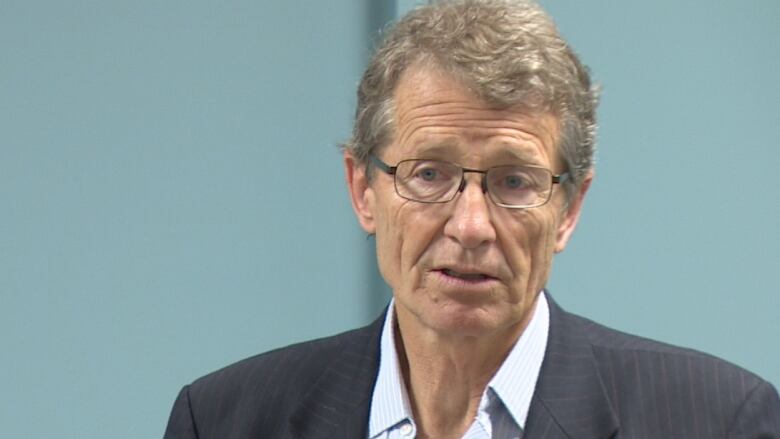Declare fentanyl addiction epidemic a health emergency, Liberal leader urges NDP
Province says 'state of emergency' not appropriate in this case

The leader of the Alberta Liberals is calling on the province to declare a public health state of emergency to tackle what he says is a fentanyl addiction epidemic.
Dr. David Swann says declaring an emergency would allow the NDP government to mobilize resources andget agencies and departments working together.
"We are now five years into this growing crisis but still have very little information on the nature of this public health epidemic. About all we know is that death rates are approaching one a day and not improving under the current approach," he said.

A state of emergency will make sure doctors, police, social workers and addiction specialists have the tools they need to combat the epidemic, Swann said.
"Any other preventable illness causing so much death and suffering would have long since been declared a public health emergency."
Swann made the comments at the Alberta Adolescent Recovery Centre (AARC), a non-profit organization that offers youth aged 12 to 21 full-time, long-term addiction recovery treatment in a setting that encourages family participation.
AARC client Tessa J., who was at Swann's announcement, told the Calgary Eyeopener on Wednesday that getting off fentanyl was an agonizing experience.
'I just couldn't stop'
CBC News agreed not to reveal her last name as she strives to put her drug use in the past.
"At first it made me feel sick. I didn't even really like it at first," she said about trying fentanyl when she was 19.
"But then I just, like, found a love for it, and it just kept on getting stronger and stronger. Then I just couldn't stop."
Tessa J. says her addiction led to her to lie and steal from family members to feed her habit, as it gradually destroyed her life.
She finally enrolled in the AARC programwith the support of her family.
"I'm almost done the program now," she said.
"It's just, like, been a really great opportunity, because I got to know myself more."
'State of emergency'not appropriate, says province
The province says a public health state of emergency isn't the way to go in this instance. The associate minister of health says the designation triggers a series of tools that are more appropriate for other health challenges.
"Tools that are appropriate for communicable disease outbreak but that frankly are not an appropriate response to a serious addictions and mental health issue," Brandy Payne told CBC News.
Payne says the province is actively collecting data, but it's not always visible to the public.
"Not all of that information is released publicly as we have concerns around individual privacy," she said.
"So far we have distributed more than 3,000 take-home naloxone kits across the province. They are available without a prescription and they can be picked up by a family member or a loved one."
Payne said those kits are responsible for saving about 300 lives so far and addedwait times for detox programs have gone down dramatically under her government.
'More funding is desperately needed'
Dr. Jackie Smith, director of community education and outreach for AARC, praised the Alberta government for providing free take-home naloxone kits a fentanyl antidote available from pharmacies.
But it's not getting to the root of the problem, she said.
"In order to truly address the fentanyl crisis impacting families and young people in our community today, more funding is desperately needed for prevention and treatment," she said.
With files from the Calgary Eyeopener












_(720p).jpg)


 OFFICIAL HD MUSIC VIDEO.jpg)
.jpg)



























































































